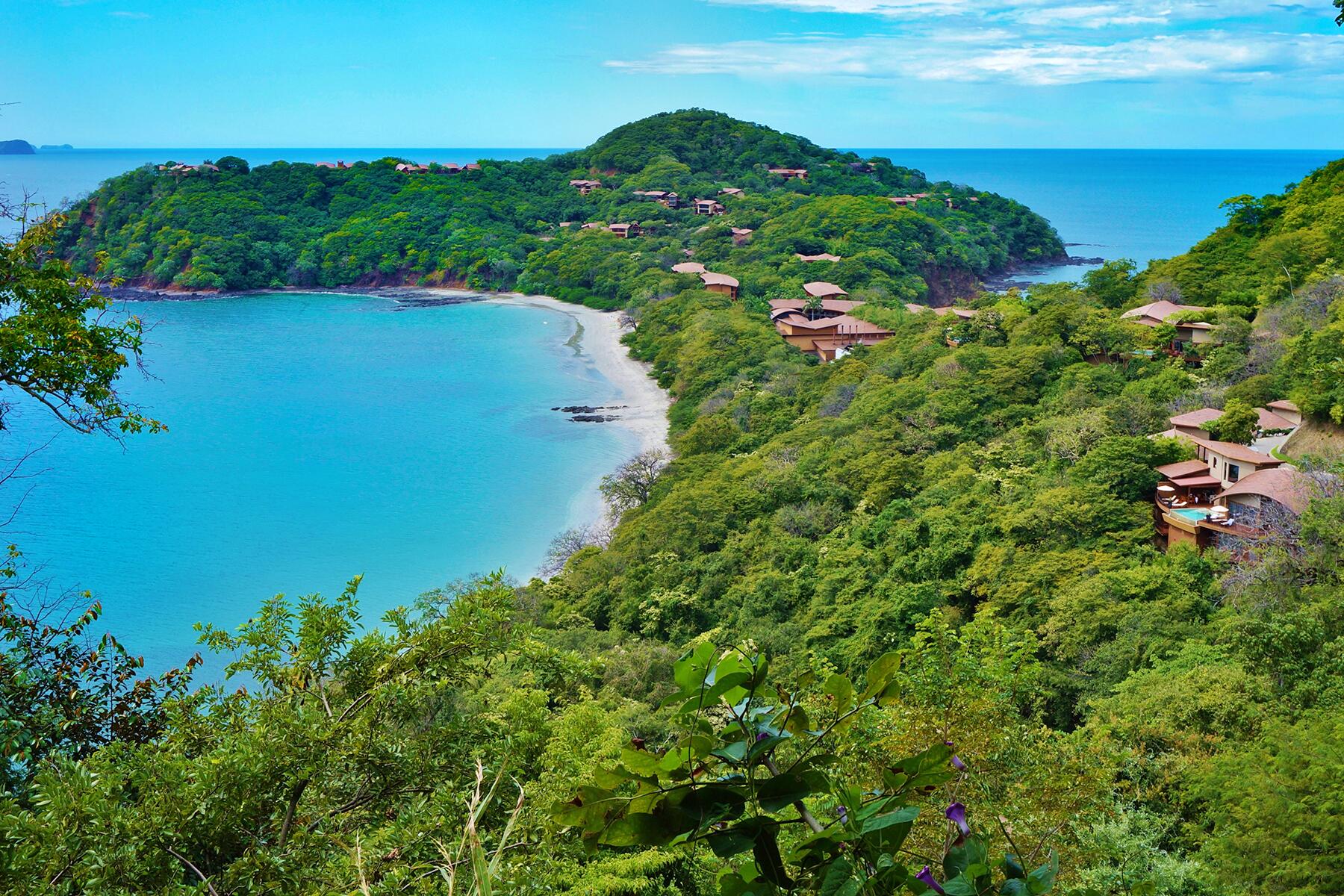After a year of border closures, Americans can finally look ahead to visiting Canada.
As of August 9, Americans will be the first international travelers allowed back into Canada since the country closed its borders last year. Up until now, Canada has been closed to all but essential travel, but recently Prime Minister Justin Trudeau announced the border reopening plan.
Canada plans to reopen to U.S. citizens and permanent residents on August 9, while travelers from other countries will be allowed into Canada as early as September 7, 2021. In order to enter Canada, all travelers over the age of five will need a pre-arrival PCR test, while those older than 12 must be fully vaccinated. Here’s what you need to know about the entry requirements for Canada.
INSIDER TIPReopening decisions are dependent on Canada’s infection rates remaining low, so keep your travel plans flexible. Check the Government of Canada’s travel.gc.ca website for up-to-date details.
Slow Reopening
Canada took its time before reopening borders, wanting both high levels of vaccinations and low levels of COVID-19 transmission amongst its citizens. Prime Minister Justin Trudeau first said he wanted to see 75% of Canadians with at least one dose of the COVID vaccine and 20% fully vaccinated before he was ready to reopen the border. Canada chose a strategy of offering first doses to as many people as possible before making second doses readily available.
As of yesterday, July 26, Canada has 228 new COVID cases with 4,637 active cases. The vaccination rate, as of yesterday, is 50.22% of Canada’s total population has been fully vaccinated and 69.69% with at least one dose.
Top Picks for You
Recommended Fodor’s Video
Canadians are missing their family and friends from the United States and worldwide, and are worried about their tourism economy. However, many are still wary of what reopening the border might mean for their health and Canada’s health care system.
Who Can Enter Canada
Starting August 9, 2021, fully vaccinated U.S. citizens and permanent residents currently residing in the U.S. will be allowed to enter Canada for nonessential purposes. For citizens of other countries, the reopening date is September 7. This means that Canada will soon be open for international tourism and leisure travel once again.
While it’s not the case for U.S. passport holders, travelers from some countries need a visa and/or electronic travel authorization to enter Canada. Check the Visit Canada website for details and to apply. There’s also a tool to check whether you’re eligible to enter Canada.
Requirements for Vaccinated Travelers
To be considered fully vaccinated, your last dose of the COVID vaccine must have been at least 14 days prior to your arrival in Canada. For now, the Government of Canada accepts four vaccines (it doesn’t matter if both doses were the same brand):
- Pfizer-BioNTech (two doses)
- Moderna (two doses)
- AstraZeneca/COVISHIELD (two doses)
- Janssen (Johnson & Johnson) (one dose)
You need to provide proof of vaccination in either English or French (or a certified translation into English or French).
You Need a Pre-arrival PCR Test
There’s also a requirement to have certified negative results from a molecular COVID test taken within 72 hours for all travelers, age five and older. Antigen tests, like the ones the U.S. requires for entry, are not accepted.
The most common molecular tests are the NAAT and RT-PCR tests, but check the travel.gc.ca website for the complete list of acceptable tests and the information you need to provide. For now, there are no exemptions for fully vaccinated travelers to skip the pre-arrival test, but that may change in the future as the world’s case count declines.
With respect to timing, the test needs to be taken within 72 hours of your planned entry if arriving by land. If you’re arriving by air, it’s within 72 hours of the departure time of the direct flight you take to Canada (if you have a connecting flight, it might mean you need a test during your layover). The requirements for a mandatory antigen test on arrival and on day eight are lifted as of August 9th. However, travelers who have COVID symptoms may be tested on arrival, and some arriving travelers will receive the antigen test on a random basis.

No Mandatory Quarantine, But You Need a Quarantine Plan
While Canada technically has a 14-day quarantine, fully vaccinated travelers who follow all the requirements will be exempt from it (including the mandatory hotel stopover for air travelers). But if you arrive with COVID symptoms, test positive in a random test on arrival, or don’t provide all of the required information, you might not be granted the exemption and may need to quarantine. For that reason, everyone arriving in Canada must submit a quarantine plan in advance of arrival.
Your quarantine plan needs to include where you would stay for a minimum of 14 days without contact from anyone who wasn’t traveling with you. A hotel is fine for people without symptoms, but you may have to go to a government facility if you have symptoms. There’s an online assessment tool to make sure your plan meets the requirements. Note that if you are quarantined, your compliance will be monitored and verified.
What About Kids Too Young to Be Vaccinated?
In Canada, children who turn 12 at any time during 2021 are eligible to be vaccinated. For kids under the age of 12 who are traveling with fully vaccinated parents, the 14-day quarantine requirement is waived as of August 9 (assuming they meet all the other exemption requirements). However, unvaccinated kids might not be allowed into group settings like summer camps, daycare centers, and schools until they’ve been cleared for COVID.

The ArriveCAN App Is Your Essential Tool
Since late May, everyone arriving in Canada must provide information about their travel, COVID status, and quarantine plan within 72 hours before crossing the border (the only exception is that people arriving by sea may do so on arrival because of technological limitations on board). The information will be verified after you submit it and checked again upon arrival in Canada. Beginning August 9th, air carriers will also confirm that you have submitted your documentation prior to boarding your flight.
You can use either the ArriveCAN app or website to submit the required information. For now, there’s a mechanism to upload a photo of your vaccination certification, but a new tool is expected later this fall, which will provide additional verification of vaccination documents.
Note that you may get a fine if you provide false information, be charged with a criminal offense, and/or denied entry into Canada indefinitely. If you violate public health instructions or put others at risk of a serious infectious disease, you could be charged under Canada’s Quarantine Act and subject to three years in prison and/or a $1 million fine.
New Airports Opening to International Travel
In spring 2020, Canada closed most of its airports to international travel, routing almost all planes arriving from abroad to just four airports: two in the west (Calgary and Vancouver) and two in central Canada (Montreal and Toronto).
Announced July 19, five more airports are reopening to international travel. This will provide access to eastern Canada (Halifax airport), give two more airport options in the west (Edmonton and Winnipeg), and two in central Canada (Ottawa and Quebec City). Additional airports will reopen to international flights as travel volume increases.

Crossing Borders Within Canada
During the height of the pandemic, some Canadian provinces and territories had additional requirements for those wanting to enter their borders, including a 14-day quarantine. For current restrictions, check the Government of Canada’s website that links to the latest COVID requirements for each province and territory. For example, visitors to Prince Edward Island currently need to apply in advance for the PEI Pass, and those wanting to travel to Nunavut territory also require advance permission. Some provinces and territories require you to confirm your vaccination status before entry, and some Indigenous communities and First Nations are not welcoming visitors into their territories at this time.
Wear Your Mask, Please
In Canada, you’re required by law to wear your mask on planes and in airports. This applies to everyone over the age of two unless you have a certified medical reason or if you’re unable to remove your mask without assistance. Once you’ve arrived in Canada, you’ll find that mask rules differ by province and sometimes by city. Individual businesses can also choose to require masks on their premises, just as they can require you to wear a shirt and shoes.
Remember that fully vaccinated people can still carry and transmit the COVID-19 virus and that the Delta variant is particularly contagious. Because COVID-19 is airborne, the virus can hang in indoor air for hours after an infected person has breathed there. Keep in mind that the public health rules of provinces like British Columbia are based on outdated science that prioritizes hand hygiene and cleaning of surfaces over masks and physical distancing.
Regardless of the formal rules, wearing a mask indoors and in crowded outdoor settings will be appreciated by others until COVID-19 is no longer considered a pandemic. The last thing you want is to inadvertently make someone sick, particularly if they can’t be vaccinated because of a medical condition or because they’re underage.
Until the world is vaccinated, it will take a while for travel to resume as it was pre-pandemic. Practices that prevent COVID transmission help everyone get back to normal as much as possible. Whether you plan to go whitewater rafting in Nova Scotia, spend a perfect day in Vancouver, or peer at polar bears in Manitoba, Canada is ready to welcome you back safely.
I suggest that you check your sources for "outdated" science in British Columbia. As a long time health care worker and resident for most of my life I can tell you that social distancing and masks have been a huge part of the public health rules here in BC. You might want to check out BCCDC for better information. http://www.bccdc.ca/health-info/diseases-conditions/covid-19/prevention-risks/physical-distancing" target="_blank" rel="noopener">http://www.bccdc.ca/health-info/diseases-conditions/covid-19/prevention-risks/physical-distancing
If Americans have visited Canada by car on a casual trip, what will we need to do to reenter the USA?
We are hoping to enter by car in BC and return to the US in Saskatchewan or the like -- several days later in September.







May we bring our puppy?